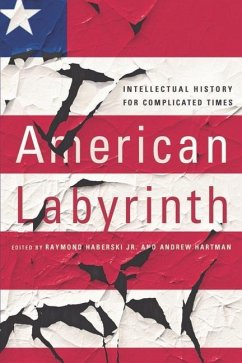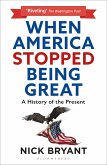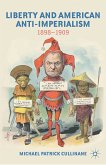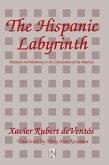American Labyrinth contains a stimulating and useful collection of essays by historians reflecting on American intellectual history.... As a whole, the book convinces the reader that the field of intellectual history is enjoying a renaissance. The book will be especially prized by intellectual historians, but historians of many different persuasions will find these essays rewarding too.¿Choice
Intellectual history has never been more relevant and more important to public life in the United States. In complicated and confounding times, people look for the principles that drive action and the foundations that support national ideals. American Labyrinth demonstrates the power of intellectual history to illuminate our public life and examine our ideological assumptions.
This volume of essays brings together 19 influential intellectual historians to contribute original thoughts on topics of widespread interest. Raymond Haberski Jr. and Andrew Hartman asked a group of nimble, sharp scholars to respond to a simple question: How might the resources of intellectual history help shed light on contemporary issues with historical resonance? The answers-all rigorous, original, and challenging-are as eclectic in approach and temperament as the authors are different in their interests and methods. Taken together, the essays of American Labyrinth illustrate how intellectual historians, operating in many different registers at once and ranging from the theoretical to the political, can provide telling insights for understanding a public sphere fraught with conflict.
In order to understand why people are ready to fight over cultural symbols and political positions we must have insight into how ideas organize, enliven, and define our lives. Ultimately, as Haberski and Hartman show in this volume, the best route through our contemporary American labyrinth is the path that traces our practical and lived ideas.
Intellectual history has never been more relevant and more important to public life in the United States. In complicated and confounding times, people look for the principles that drive action and the foundations that support national ideals. American Labyrinth demonstrates the power of intellectual history to illuminate our public life and examine our ideological assumptions.
This volume of essays brings together 19 influential intellectual historians to contribute original thoughts on topics of widespread interest. Raymond Haberski Jr. and Andrew Hartman asked a group of nimble, sharp scholars to respond to a simple question: How might the resources of intellectual history help shed light on contemporary issues with historical resonance? The answers-all rigorous, original, and challenging-are as eclectic in approach and temperament as the authors are different in their interests and methods. Taken together, the essays of American Labyrinth illustrate how intellectual historians, operating in many different registers at once and ranging from the theoretical to the political, can provide telling insights for understanding a public sphere fraught with conflict.
In order to understand why people are ready to fight over cultural symbols and political positions we must have insight into how ideas organize, enliven, and define our lives. Ultimately, as Haberski and Hartman show in this volume, the best route through our contemporary American labyrinth is the path that traces our practical and lived ideas.
Dieser Download kann aus rechtlichen Gründen nur mit Rechnungsadresse in A, D ausgeliefert werden.









